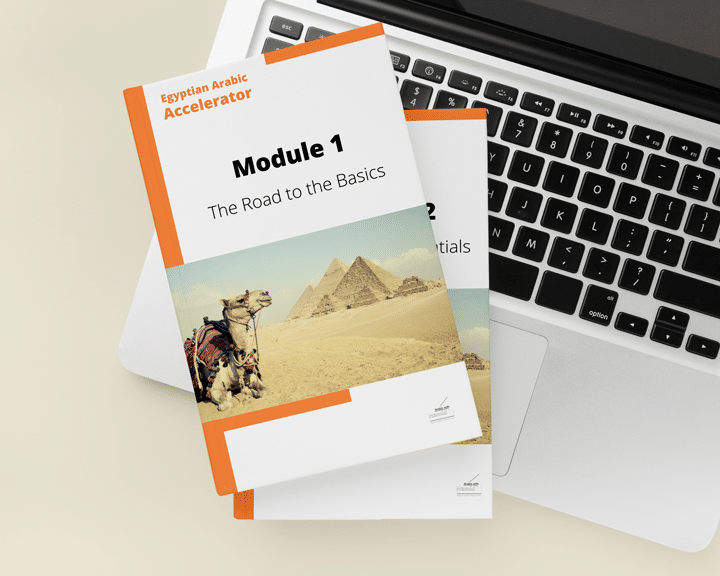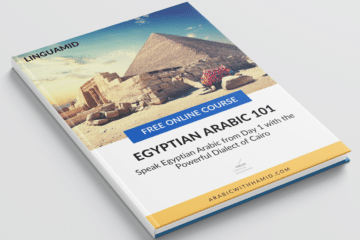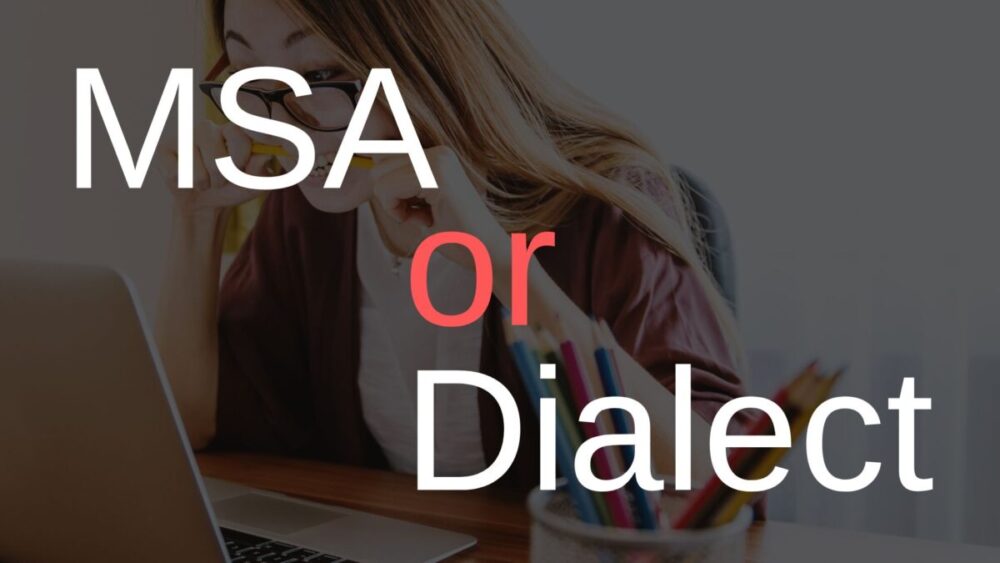
‘How to speak Arabic?’ or ‘How to speak in Arabic?’
The variations of this question are limitless. Especially, if communication is the main concern, many learners have trouble grasping the differences and applications between MSA and spoken dialects. That is, where and when to choose each variation and why.
That being said, a very critical point that concerns many Arabic learners worldwide is the choice between Modern Standard Arabic (MSA) or a spoken dialect when you start learning Arabic. I can tell how confusing this can be because I have been receiving this question over and over again throughout my online Arabic courses and YouTube channel.
After all, as you start to learn Arabic and dive into this beautiful world, you need to equip yourself with the right tools.
I have heard from many students how difficult it was when they first started. The most difficult thing they confronted was the choice between Standard Arabic, with its grammar and sophisticated structure, and spoken dialects which looked a bit different in structure and form from the Standard language.
So, If you are starting to learn Arabic, you most probably asked yourself this question: To learn Arabic effectively, Which route should I chose: MSA or spoken dialects. Also, can we start learning a spoken dialect without an MSA foundation? This article answers these fundamental questions.
First of all, there are no absolutes and the issue is very relative, depending on your perspective. So the Pro-MSA team and the Pro-Spoken dialects team will present their arguments – Then you will choose, which argument convinces you..
.
.
.
Team 1: MSA is more important
With this route, you will be able to read the Holy Quran. The Quran’s vocabulary comes from Classical Arabic. But to dive into this world, you need a strong MSA foundation.
You can read newspapers and most books, which are almost entirely offered in MSA. This is an excellent advantage over learning dialects.
According to Team 1, MSA as it forms a foundation for your growing Arabic knowledge.
Without this foundation, learning a dialect can be a tedious task.
Team 2: Dialect is more important
The opposite side has a different perspective. Their main argument is that learning MSA is very time-consuming.
What if my priority is speaking or understanding others? Do I still need to dive into the big world of MSA? The answer, according to this team, is a big NO.
You can start directly learning the dialect by hearing without the need to build a foundation in MSA. According to Dialect-first supporting team, you are saving much time learning a language that is entirely different compared to the Roman or Germanic languages.
A second point is that if you want to speak in MSA in daily situations not everyone will be able to understand you and make a productive conversation.
Many natives will not understand most of your MSA or may even laugh or think you are making a show or something (As a native, if you heard people laughing, be sure that they laugh NOT out of disrespect, but out of unfamiliarity or weirdness of expressions – Do not be offended!
As a tourist, it is much more practical to indulge in conversational dialect, which will make it easier for you to communicate with different layers of people and to address those who can’t understand and/or speak MSA.
Keep in mind that, like any language, there are much fewer rules or standards in dialects compared to MSA. So depending on your ears and what people say.
Egyptian Arabic is not strictly systematic like MSA. It’s true it has grammatical rules, which I explain in deep detail in my all-in-one Accelerator course. However, the rules of the spoken Egyptians are much easier to absorb and less diverse compared to MSA.
Even more, you say the expressions as you hear them. So you don’t need to follow a systematic rule every time. This way, you will never be bored.
Also, dialects are for communication, not writing – but still, you may find a few books here and there written in dialects, but the vast majority is written in MSA.
So, what are your preferences?
The choice is up to you, and you are the only one who can decide which way is more effects. Why? Because it depends on you and your preference.
Do you want to communicate? – Go for dialects
If you have a foundation in MSA, this is good. If not, you did not practically lose anything. For instance, you can still start fresh using the Egyptian dialect, the most widely understood dialect across the Arab region. With my Egyptian Arabic 101 course, you can build a good foundation in Egyptian Arabic, where you can continue your journey with this beautiful and powerful dialect. You will not need any previous knowledge of the dialect or MSA.
Do you want to learn the Quran, have a foundation, read books or understand news – Then MSA, followed by classical Arabic for Quran, is your way.
..
I hope you liked this article. Do not forget to watch my YouTube episode that is fully dedicated to this topic. In this episode, I summarize all this for you. Also, tell me in the comments below which route you find more appealing.
Now, which route are you interested in?
If you haven’t done already, join my free course: Egyptian Arabic 101


3 comments